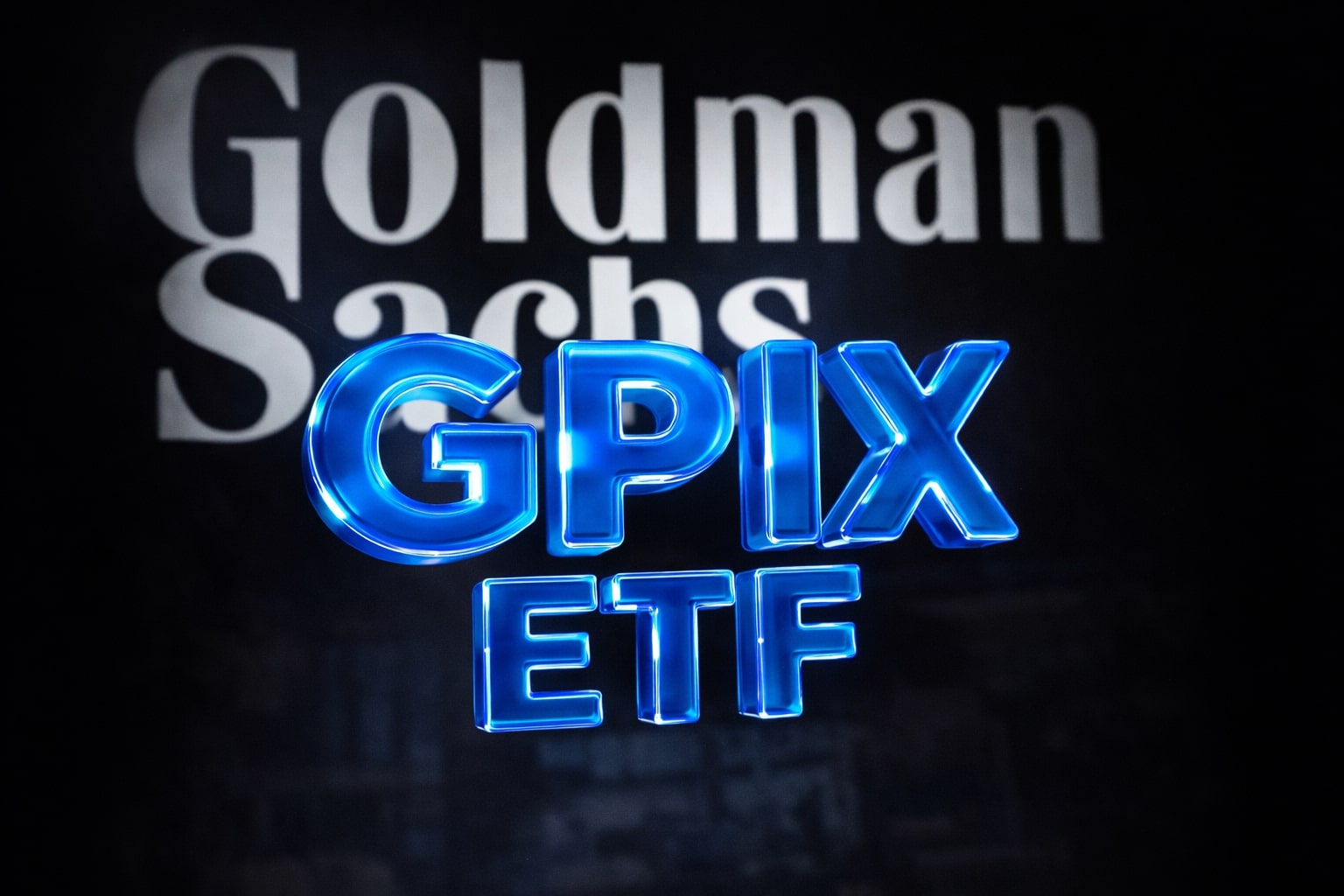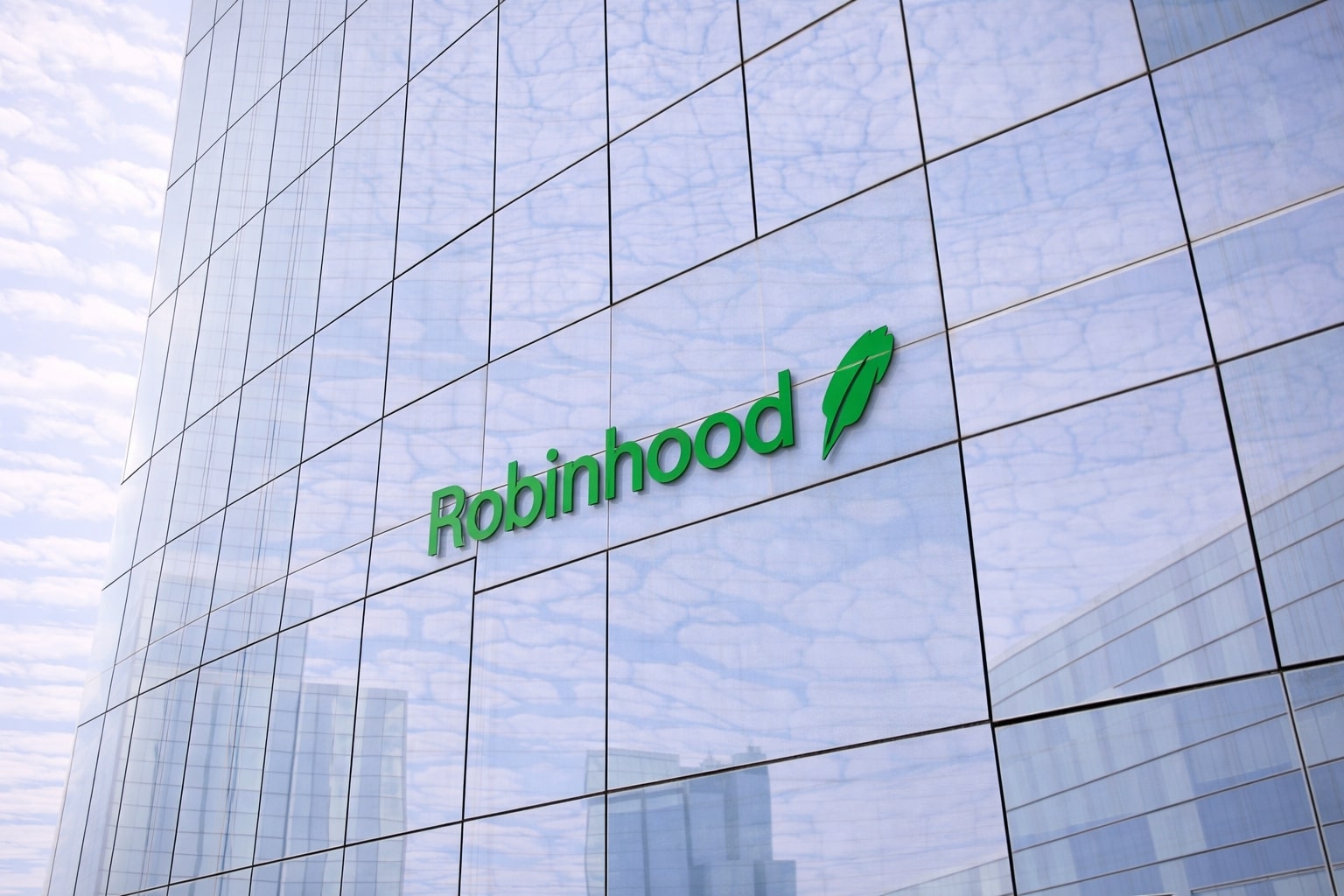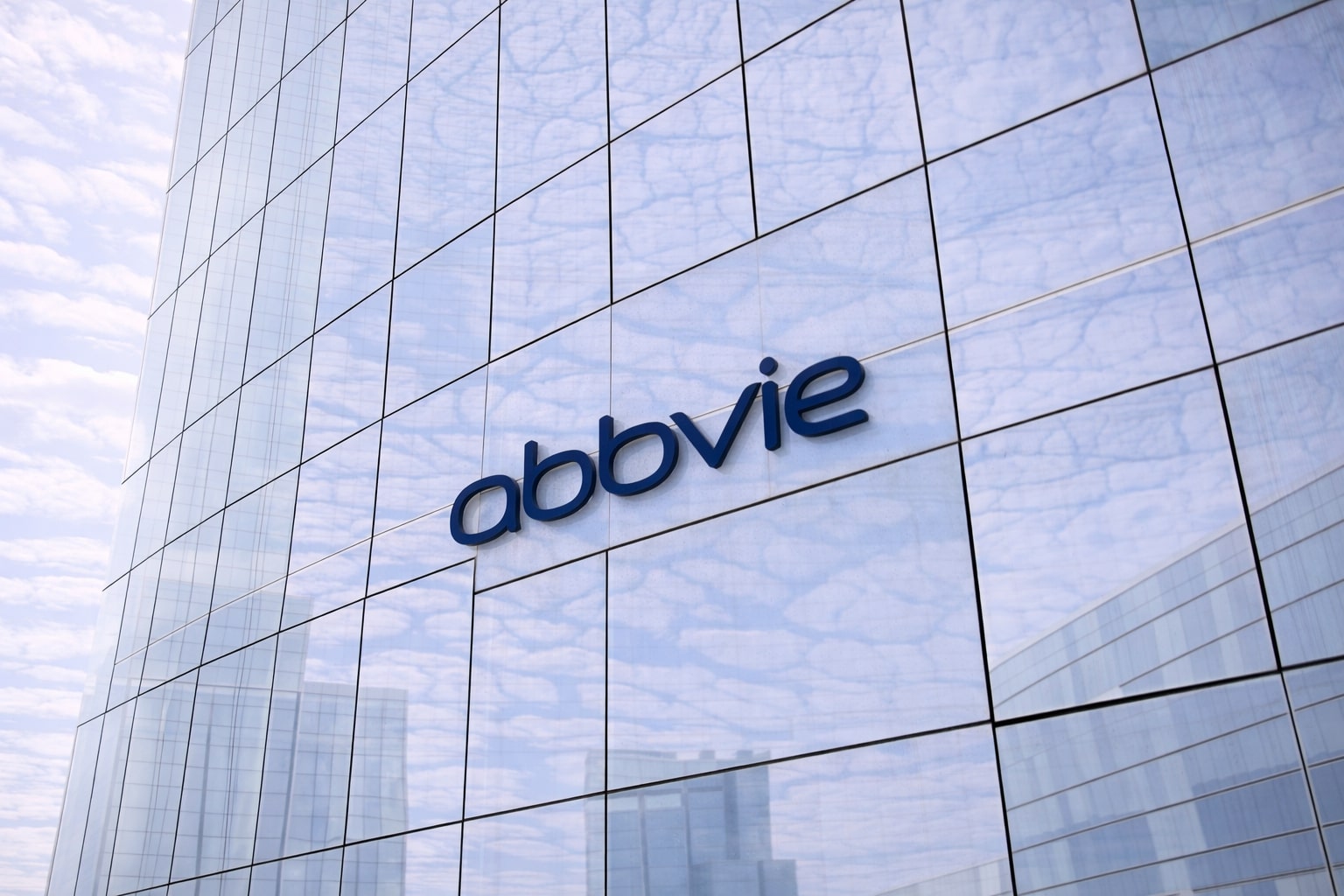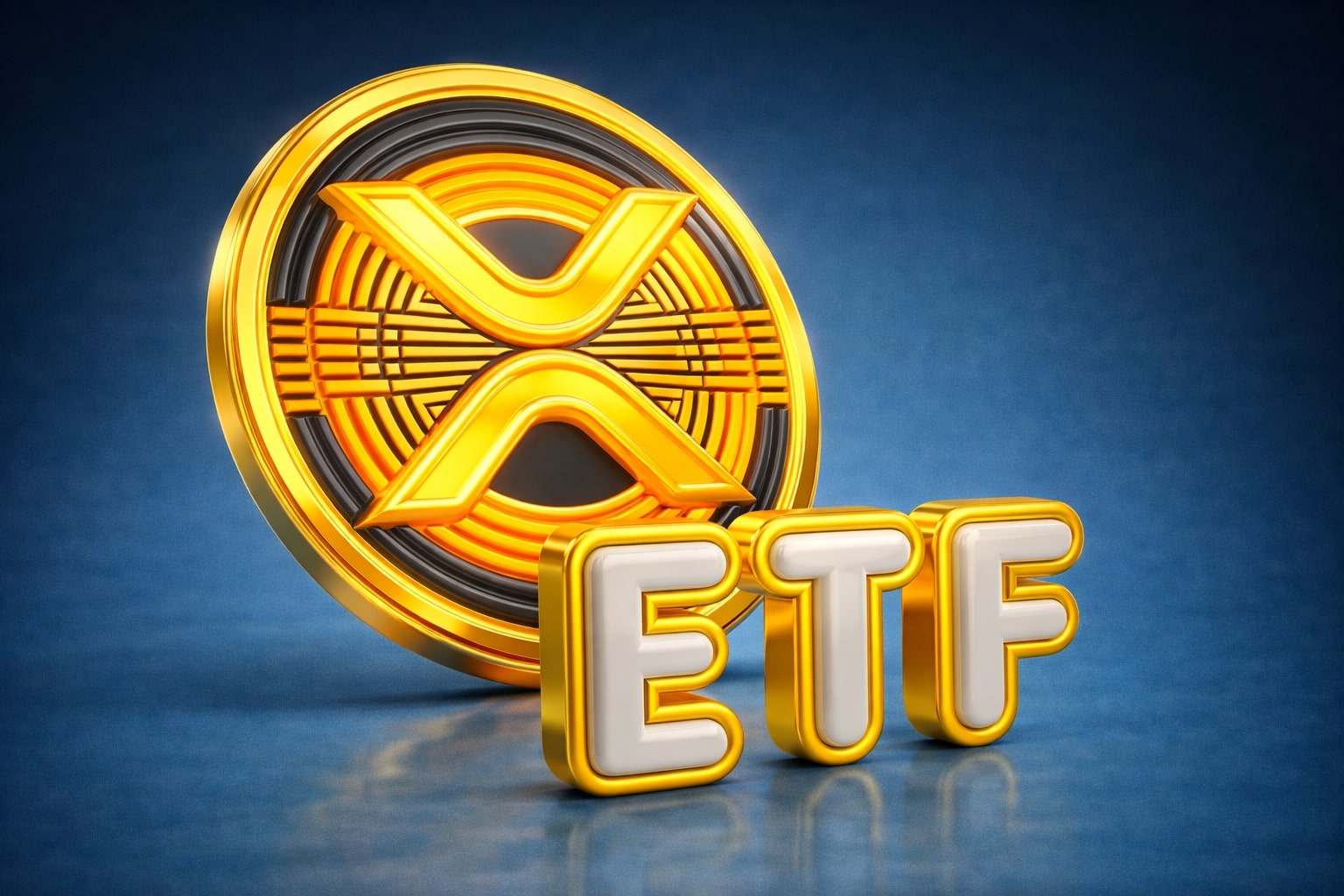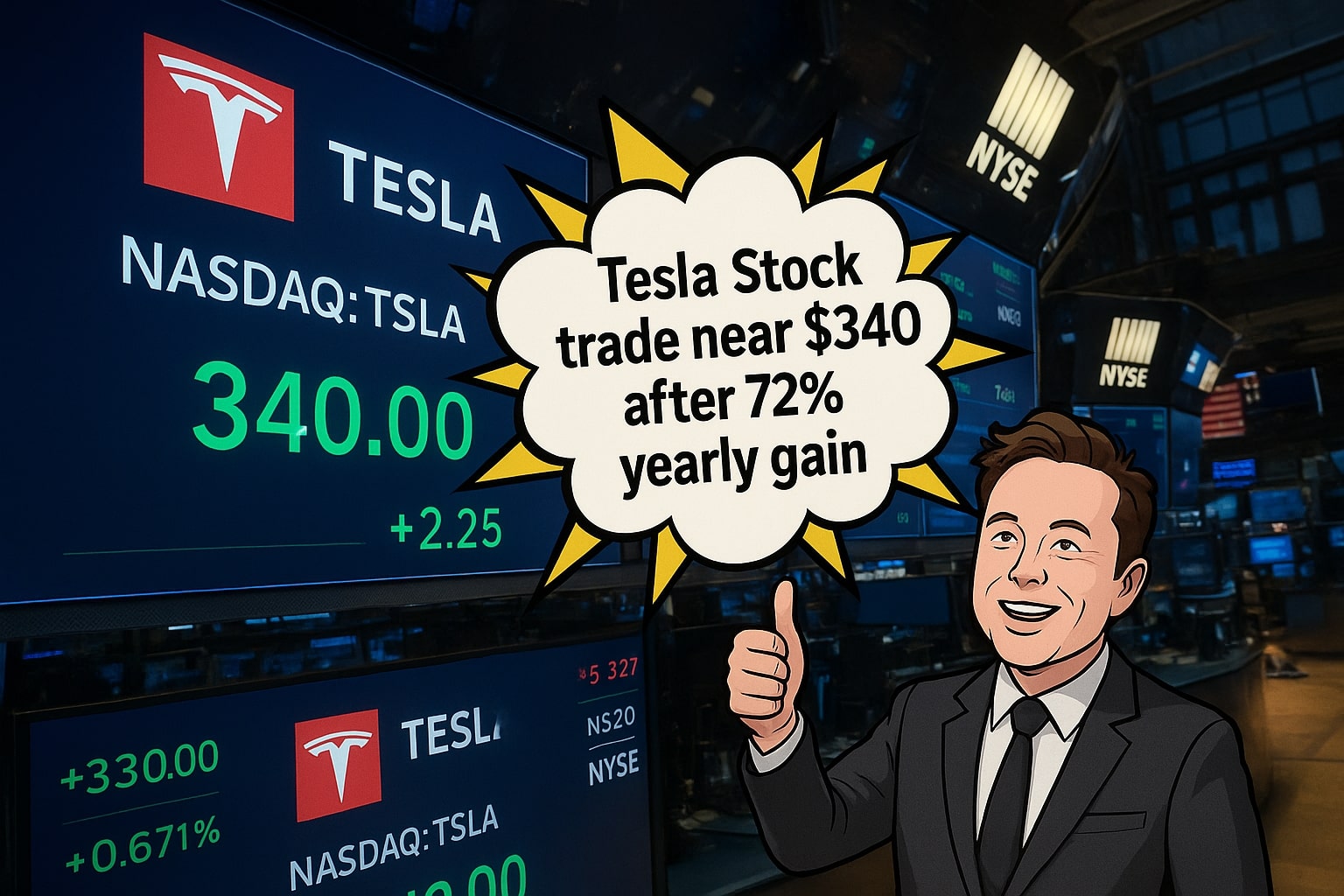
Tesla (NASDAQ:TSLA) Stock Holds $339.75 as Q2 Revenue Hits $22.5B, AI and Robotaxi Plans in Focus
Tesla Stock trade near $340 after 72% yearly gain; margins tighten, but new models and autonomy strategy keep growth story alive | That's TradingNEWS
Tesla (NASDAQ:TSLA) Holds Above $339 Amid Heavy Volume and Complex Corporate Currents
NASDAQ:TSLA closed at $339.75, slipping $1.09 or 0.32%, after fluctuating between $338.20 and $348.98 on a notably high volume of 67.44 million shares. This comes after a multi-session advance that pushed the stock above $340, regaining some of the ground lost earlier this year. Tesla’s market capitalization remains just above $1.1 trillion, with investor sentiment pulled between operational execution and headline-driven volatility.
Short-Term Momentum Confronts Heavy Overhead Resistance
The zone between $348–$350 is acting as a strong technical ceiling, attracting sellers after the recent rally. Support has formed just above $338, and a decisive break below could trigger a retreat toward $325–$330. Tesla’s five-day rally preceding this session added roughly 10% to the share price, supported by a rebound in the Nasdaq and optimism around upcoming product cycles. Even so, the stock remains down 16% year-to-date but has surged 72% over the last 12 months, underscoring its high volatility.
Elon Musk’s $32.5 Billion Stock Grant Stirs Investor Debate
In early August, Tesla’s board approved a 96 million-share grant for CEO Elon Musk, valued at $32.5 billion at current prices. The grant vests over two years if Musk stays as CEO or in another top executive role, despite ongoing legal challenges to his 2018 pay deal. Critics view the award as excessive, while supporters argue Musk’s leadership is central to Tesla’s future in EVs, AI, and robotics. The grant further tightens the link between Musk’s wealth and Tesla’s valuation, which is already driven by his stakes in SpaceX and xAI.
Q2 2025 Results Highlight Margin Pressures and Cash Flow Strain
Tesla’s Q2 2025 results on July 23 showed $22.496 billion in revenue, down 11.78% year-over-year—its second straight annual decline. Automotive revenue dropped sharply, with Model 3/Y deliveries down 12% and other models plunging 52%, while average selling prices fell. Gross margin contracted to 17.2%, down 71 basis points, and operating margin slipped to 4.1%. Adjusted EPS of $0.40 met analyst estimates but was 23% lower than a year ago. Free cash flow plummeted 89% to $146 million as operating cash flow fell 30% and capital expenditure rose over 5%.
Strategic Growth Anchored by Autonomy, New Models, and Affordability
Autonomous driving remains a strategic pillar, with Tesla’s Austin-based robotaxi service now running with safety drivers and expansion planned across U.S. cities. Cybercab production is slated for 2026, and FSD adoption rates are climbing. A lower-priced Tesla model is set for release in 1H 2025, positioned to offset the impact of the $7,500 U.S. EV tax credit expiration in September. These launches aim to counter slowing global EV demand and growing competition from both traditional automakers and EV startups.
Political and Legal Headwinds Add to Market Uncertainty
Musk’s clashes with Apple over App Store practices and his role in the Trump administration’s Department of Government Efficiency have stirred political controversy and investor caution. Tesla is also facing a shareholder lawsuit alleging securities fraud linked to autonomous driving safety claims, adding regulatory overhang to the stock’s risk profile.
Institutional Activity and Insider Signals
Deutsche Bank boosted its Tesla holdings by 20.8% in Q1 2025, showing confidence despite operational headwinds. Tracking large institutional moves, alongside insider transactions, will be key to gauging sentiment shifts as Tesla executes its ambitious roadmap.
Analyst Targets Highlight Deep Valuation Divergence
Wall Street price targets for Tesla vary widely—from $115 at JP Morgan to $500 at Wedbush—averaging around $302, which sits below current trading levels. Goldman Sachs sees $300, HSBC $120, and Barclays $275. The broad range reflects differing opinions on Tesla’s execution capability in autonomy, AI, energy, and robotics. With the stock trading at over 12x sales and a forward P/E near 200x, it is priced for substantial long-term growth, leaving little margin for missteps.
Core Business Versus Optionality Premium
Tesla’s EV, energy, and services segments may justify around $366 billion in equity value under optimistic assumptions, with the remaining market cap representing premium for future ventures—robotaxi services, FSD licensing, Optimus humanoid robots, and large-scale energy storage. Using an adapted Black-Scholes framework, this optionality could be worth $629 billion if aggressive adoption scenarios play out, aligning with the current $1.06 trillion valuation.
Technical Risks and Short-Term Bias
Maintaining price action above $340 is essential for sustaining bullish momentum. A failure to hold could bring Tesla back to the $320–$325 range, while a breakout above $350 would target the mid-$360s, where heavy selling emerged earlier. The expiration of U.S. EV tax credits, possible production delays in autonomous programs, ongoing litigation, and margin compression remain key short-term risks.
That's TradingNEWS
Read More
-
GPIX ETF Climbs to $52.54 as 8% Yield Turns S&P 500 Volatility Into Income
02.01.2026 · TradingNEWS ArchiveStocks
-
XRP ETF Rally: XRPI $11.54, XRPR $16.35 And XRP-USD At $1.99 Aim For A $5–$8 Cycle
02.01.2026 · TradingNEWS ArchiveCrypto
-
Natural Gas Price Forecast: NG=F Tests $3.50–$3.60 Floor Before LNG Wave
02.01.2026 · TradingNEWS ArchiveCommodities
-
USD/JPY Price Forecast - USDJPY=X Holds Near 157 as BoJ Caution and Fed Cut Bets Drive the Move
02.01.2026 · TradingNEWS ArchiveForex














